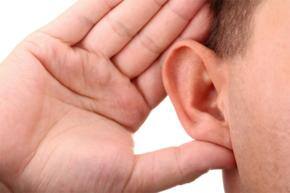Leading specialist urges New Zealanders to get hearing checked this Deaf Awareness Week

A leading hearing specialist is urging New Zealanders to have their hearing tested this Deaf Awareness Week (23 - 29 September 2013).
“Many of us are diligent in attending regular check ups for eyes, teeth and other health matters, but so often hearing is overlooked. An audiogram (hearing test) is a quick, pain-free and straightforward test that everyone should be considering this Deaf Awareness Week,” says Mr Michel Neeff, a leading New Zealand Ear, Nose and Throat surgeon.
Hearing loss often occurs progressively and insidiously Mr Neeff says. “A hearing test can provide early detection and help ensure the right advice is available. Hearing loss can also signal the presence of a more serious hearing condition that may need medical attention and early detection can make a significant difference in the type of treatment required.”
Links between hearing loss and serious illness
A study looking at the ‘Health effects of cochlear implants’ published in the NZ Medical Journal in May 2013 found that living with significant hearing loss can be detrimental to the individual’s health. The study of people with cochlear implants, and those waiting for a cochlear implant found those on waiting lists experienced a greater number of health conditions, longer illnesses, took medication for a greater number of conditions and had poorer mental health.
The New Zealand research demonstrates the impact of long term stress on both physical and mental health from living with significant acquired hearing loss. US researchers have also linked hearing loss to dementia.
In a recent study of 639 people aged 60+ at Johns Hopkins University , those with mild cognitive hearing loss (a loss of 25 decibels, meaning they would struggle to follow quiet conversation or a conversation in a noisy room) scored significantly worse in cognitive tests. Their scores suggested their cognitive abilities aged by the equivalent of seven years, compared with people with normal hearing.
One of the researchers, Dr Frank Lin from John Hopkins School of Medicine, has conducted a number of studies on hearing loss and dementia. In a previous study, those individuals with a mild, moderate, and severe hearing loss, respectively, had a two, three and five-fold increased risk of developing dementia over the course of the study.
Dr Lin has suggested some possible explanations for the association – social isolation, one of the risk factors for dementia, or some underlying brain damage which leads to both hearing and cognitive decline.
“It could also be that if you’re constantly having to expend more (mental) energy decoding what you hear, then it comes at a cost,” Dr Lin said. “Hearing loss doesn’t directly contribute to dementia, but leads to cognitive load on the brain.”
A leading hearing specialist is urging New Zealanders to have their hearing tested this Deaf Awareness Week (23 - 29 September 2013). “Many of us are diligent in attending regular check ups for eyes, teeth and other health matters, but so often hearing is overlooked. An audiogram (hearing test)...
A leading hearing specialist is urging New Zealanders to have their hearing tested this Deaf Awareness Week (23 - 29 September 2013).
“Many of us are diligent in attending regular check ups for eyes, teeth and other health matters, but so often hearing is overlooked. An audiogram (hearing test) is a quick, pain-free and straightforward test that everyone should be considering this Deaf Awareness Week,” says Mr Michel Neeff, a leading New Zealand Ear, Nose and Throat surgeon.
Hearing loss often occurs progressively and insidiously Mr Neeff says. “A hearing test can provide early detection and help ensure the right advice is available. Hearing loss can also signal the presence of a more serious hearing condition that may need medical attention and early detection can make a significant difference in the type of treatment required.”
Links between hearing loss and serious illness
A study looking at the ‘Health effects of cochlear implants’ published in the NZ Medical Journal in May 2013 found that living with significant hearing loss can be detrimental to the individual’s health. The study of people with cochlear implants, and those waiting for a cochlear implant found those on waiting lists experienced a greater number of health conditions, longer illnesses, took medication for a greater number of conditions and had poorer mental health.
The New Zealand research demonstrates the impact of long term stress on both physical and mental health from living with significant acquired hearing loss. US researchers have also linked hearing loss to dementia.
In a recent study of 639 people aged 60+ at Johns Hopkins University , those with mild cognitive hearing loss (a loss of 25 decibels, meaning they would struggle to follow quiet conversation or a conversation in a noisy room) scored significantly worse in cognitive tests. Their scores suggested their cognitive abilities aged by the equivalent of seven years, compared with people with normal hearing.
One of the researchers, Dr Frank Lin from John Hopkins School of Medicine, has conducted a number of studies on hearing loss and dementia. In a previous study, those individuals with a mild, moderate, and severe hearing loss, respectively, had a two, three and five-fold increased risk of developing dementia over the course of the study.
Dr Lin has suggested some possible explanations for the association – social isolation, one of the risk factors for dementia, or some underlying brain damage which leads to both hearing and cognitive decline.
“It could also be that if you’re constantly having to expend more (mental) energy decoding what you hear, then it comes at a cost,” Dr Lin said. “Hearing loss doesn’t directly contribute to dementia, but leads to cognitive load on the brain.”









Leave a Comment